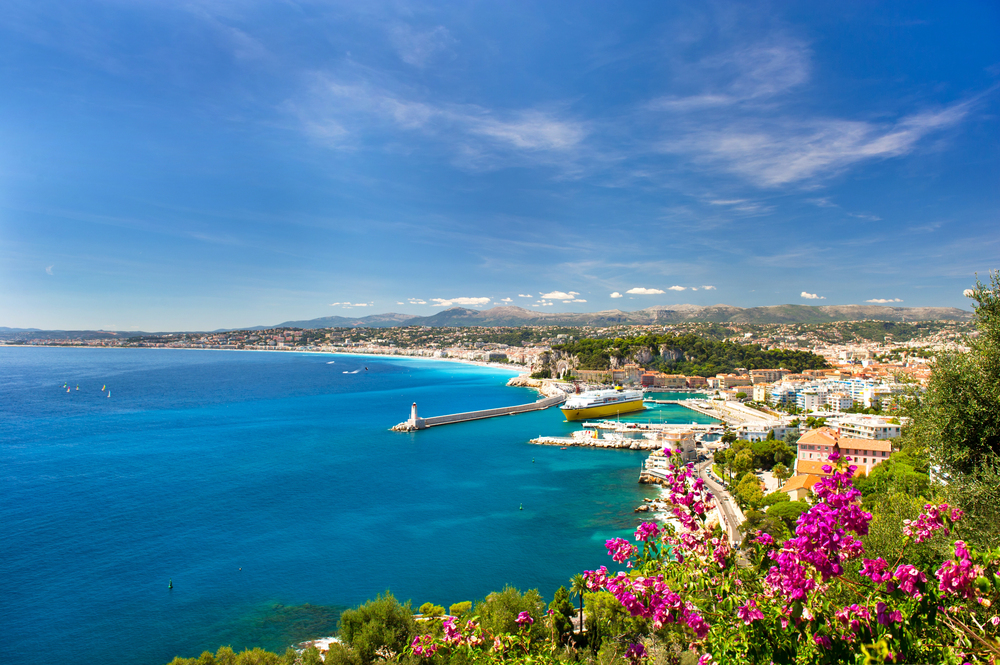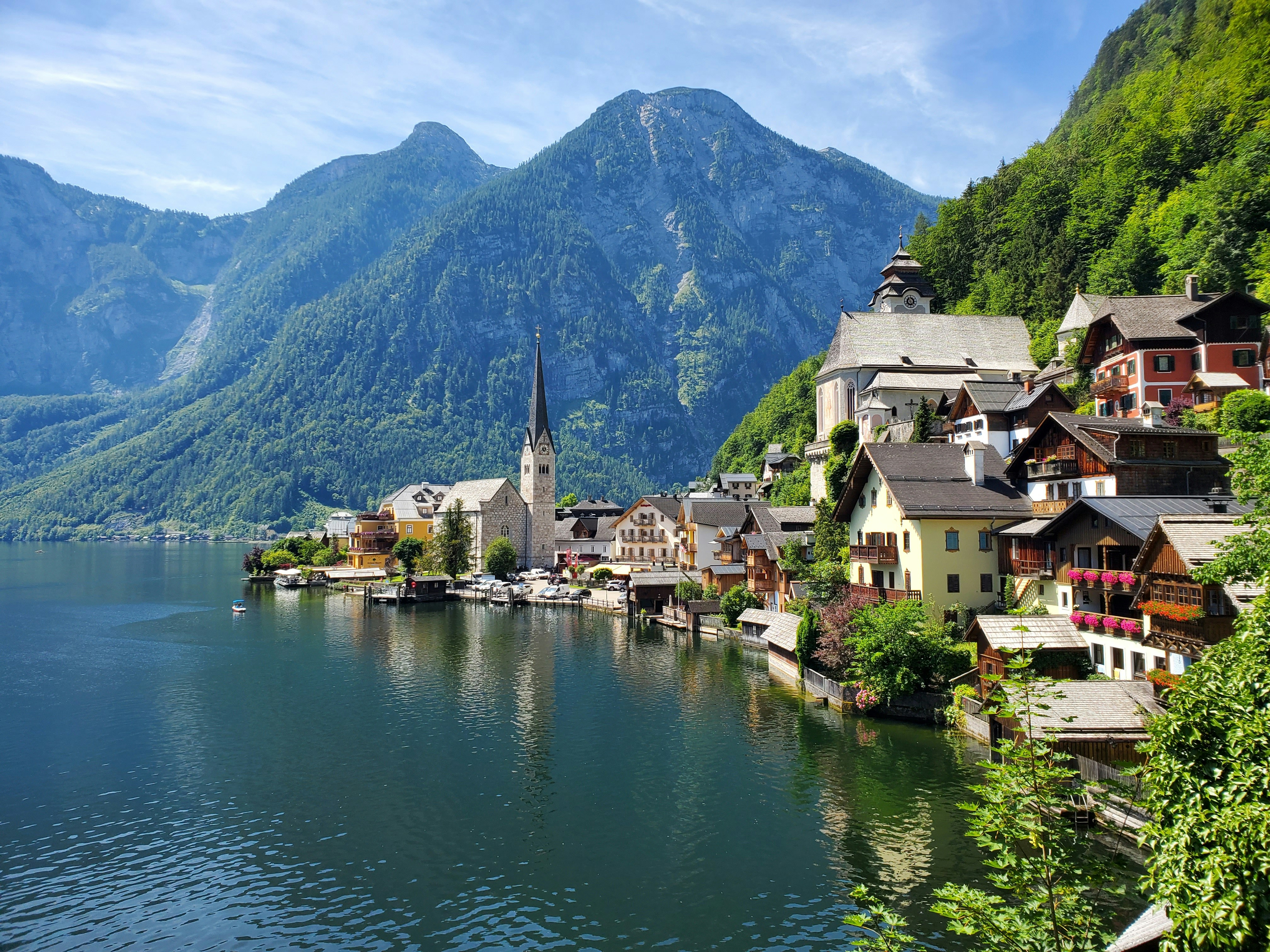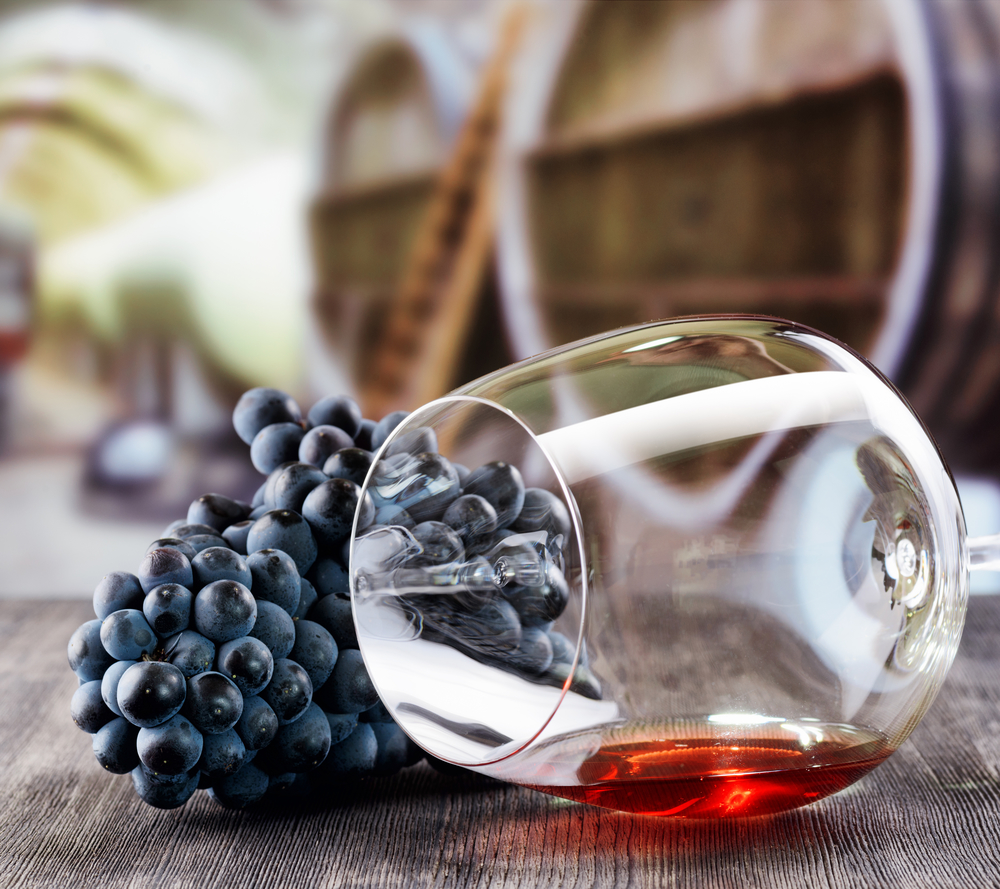Day 1 - Friday, June 10: Fight from Toronto to Venice
Evening departure on Air Canada’s non-stop flight from Toronto to Venice. Dinner and a light breakfast will be served on board.
Day 2 - Saturday, June 11: Venice to Trieste
Arrival at Venice Airport and transfer to the city of Trieste (150 km), located along the Adriatic coast on a coastal strip of Italian land surrounded by Slovenian territory, a limestone plateau known in Italian as the Carso, and also very close to the border with Croatia. Trieste used to be a major “centre of literature, music, art, and culture” when, until the end of WW I, it was part of the Austrian-Hungarian Empire; today, the city is a delightful and fascinating fusion of Italian and Eastern European architecture and atmosphere, and a magnificent window on the Adriatic Sea. Check into the centrally-located first-class/4-star Hotel Victoria, a “literary hotel,” housed in a historic building in which the famous Irish writer, James Joyce, used to live for some time. (On Tripadvisor, the Victoria is ranked #3 out of 57 hotels in Trieste.) Free time to get some rest after your overnight flight. In late afternoon, introductory walk to Trieste’s wonderful waterfront and majestic main square, Piazza Unita d’Italia, Europe's largest sea-front square. Welcome drink, perhaps one of the local favourites, such as Campari Soda and Aperol Spritz, followed by dinner in a typical restaurant near the hotel.
Day 3 - Sunday, June 12: Trieste
Morning sightseeing tour of Trieste, with focus on the two oldest parts of the city. We start with the scenic Civitavecchia or “old town,” dating back to the Roman era, when this city was called Tergeste, a pedestrian maze of narrow and crooked streets with medieval houses, interesting shops, and attractive bars and restaurants in addition to Roman ruins such as the Roman Theatre and a monumental gate known as the Arco di Riccardo. On to San Giusto Hill, the site where the city originated and where the Roman forum used to be, to visit the Cathedral and enjoy sights such as the castle, the World War I Memorial, the ruins of the Roman propylaea and a basilica, and splendid panoramas of the city, the harbor, and the Adriatic Sea. At the end of our tour, you may want to have lunch in the historical Viennese-style Caffè San Marco, once a favourite of the many literary personalities who spent time in this multicultural city with a great literary tradition, for example James Joyce, who arrived here in 1904 to teach English. As the afternoon is free, an attractive option would be to visit the local Joyce Museum (www.museojoycetrieste.it; for more on Joyce in Trieste, see www.museojoycetrieste.it/english/the-trieste-of-james-joyce). Dinner in a typical restaurant.
Day 4 - Monday, June 13: Trieste
This morning we finish our local sightseeing program with a leisurely walking tour of the “Austrian Quarter,” a.k.a. the Borgo Teresiano, the “Maria Theresa district,” names recalling the many centuries before the end of WW I, when this city belonged to the Habsburg Empire. The main sights here are the Piazza Unita d’Italia; the Piazza della Borsa; the Verdi Theatre, dating back to 1801; the Church of St. Nicholas of the Greeks; the scenic Grand Canal; the Pantheon-like Church of San Antonio Nuovo, and a plethora of imposing buildings in neo-classical or Art Nouveau style more typical of Austria and Central Europe than Italy! And on the Via Roma bridge stands a life-sized statue of James Joyce. After a break for lunch – perhaps in another historical establishment, such as Caffè Tommaseo? – we visit the Revoltella Museum of Modern Art, located in a mansion originally owned by Pasquale Revoltella, a local merchant who helped finance the Suez Canal, and renovated by world-famous Carlo Scarpa; the museum features one of Italy’s finest collections of modern and contemporary art, mostly by Italian masters such as De Chirico..
Day 5 - Tuesday, June 14: Aquileia
Morning excursion to the archaeological site of Aquileia, terminus of Antiquity’s Amber Road, linking the Adriatic, and the Mediterranean Sea in general, to the Baltic Sea, one of the largest and wealthiest cities of the Roman Empire and a major centre of early Christianity, associated with saints such Jerome and Ambrose; the city was destroyed by Attila in the 5th century. This UNESCO World Heritage Site (http://whc.unesco.org/en/list/825) includes one of Italy’s most remarkable early Christian monuments, an ancient Basilica featuring the world’s largest antique mosaic pavement, as well as the fascinating remains of the Roman Forum and the ancient harbor. We also visit the fine local Archaeological Museum. On the way back to Trieste, we visit Miramare Castle, a seaside chateau and park that used to be the residence of Habsburg crown prince Maximilian, and view more of the city’s outlying places of interest, such as the Faro della Vittoria (“Victory Lighthouse”), a Memorial to WW I, during which the acquisition of this city, still part of the Habsburg Empire, was one of Italy’s major war aims.
Day 6 - Wednesday, June 15: Slovenia
Full-day excursion into Slovenia. First we visit Ljubljana, the country’s capital, with focus on the very attractive old town; highlights will include the major squares with their fountains, statues, and imposing buildings such as city hall and the Slovenian Parliament, Triple Bridge and Dragon Bridge, the Open Market, and Ljubljana Castle, high on a hill with superb views of the city. Also some free time to shop, explore on your own, and have lunch. In the afternoon, we visit nearby Bled, an exquisite resort in the Alps, nestled on the shores of a lake surrounded by towering mountain peaks. After a tour of the lake and a boat trip, return to Trieste. This evening it may be possible to enjoy an optional classical music concert.
Day 7 - Thursday, June 16: Trieste
Morning visit to the Winckelmann Museum of Antiquities, full of ancient Egyptian, Greek, and Roman as well as medieval jewelry and other artefacts, and also featuring a lovely garden (http://museoantichitawinckelmann.it). On to Trieste’s colourful market hall, the Mercato Coperto, where vendors sell flowers, fruits, vegetables, fish, meat, and cheese, but also clothing, antiques, books, etc. You may want to stay here for lunch! The afternoon is free to shop, explore on your won, and/or visit yet another museum, perhaps the Railway Museum, displaying models and full-sized train engines and cars as well as old-fashioned horse-drawn trams, or the excellent Naval Museum (https://museodelmaretrieste.it). We also recommend a mid-afternoon break in one of the many fine pastry shops, such as Caffè Pasticceria Pirona, founded in 1900 (https://pirona1900.com), and Caffè degli Specchi on Piazza Unità d'Italia (http://www.caffespecchi.it), which offer delicious local varieties of famous Austrian cakes such as Sacher torte and strudel. Do your prefer ice cream? If so, try the fabulous gelato at Gelateria Zampolli (https://www.gelateriazampolli.com)! If there is sufficient interest, an optional half-day visit may be organized to the town of Lipica, just cross the border in Slovenia, for a visit to the original stud farm of the horses of the world-famous Viennese Spanish Riding School, known as "The Lipizzaner” (https://www.slovenia.info/en/places-to-go/attractions/lipica)!
Day 8 - Friday, June 17: Fuiuli, Italy
Full-day excursion into the nearby Italian province of Friuli. We first visit the region’s attractive capital, Udine, whose architecture reflects the many centuries when the city was ruled by Venice; the major sights are Piazza Liberta, reminiscent of St. Mark’s Square in Venice, with its Loggia del Lionello, Clock Tower, statues, and fountains, and the Cathedral, whose interior boasts paintings by Tiepolo. On to the ‘killing fields’ where Italian and Austrian troops fought major battles during WW I, for sightseeing on both sides of the Italian-Slovenian border, in the area of the towns of Kobarid (Caporetto) and Gorizia. Return to Trieste in late afternoon. Today, group lunch in Gorizia OR dinner in Trieste.
Day 9 - Saturday, June 18: Pula Peninsula, Croatia
Full-day tour of the nearby scenic Pula Peninsula, jutting out into the Adriatic Sea, part of Italy between the two World Wars but now belonging mostly to Croatia, featuring magnificent scenery along the coast as well as in the interior. The highlights will be the ancient Greco-Roman town of Pula with its impressive, well-preserved Roman amphitheatre, the picturesque seaport of Rovinj, where we will enjoy a lunch of Croatian specialties, and Porec, home to another UNESCO World Heritage Site, the 6th-century Euphrasian Basilica complex with its Byzantine mosaics. Today, group lunch in Croatia.
Day 10 - Sunday, June 19: Trieste
Your last day in Trieste is at leisure to shop and/or explore the city on your own. An optional excursion to Venice, by train, will be available. This evening, “arrivederci” dinner in a typical restaurant!
Day 11 - Monday, June 20: Return flight to Toronto
After breakfast, short transfer to Venice Airport and non-stop return flight to Toronto with Air Canada.







